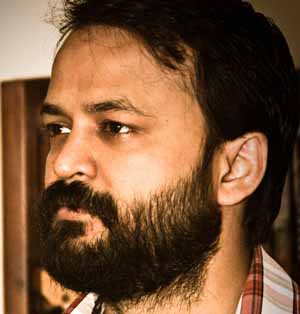New Delhi, Apr 26: The total count of coronavirus cases in the country surged to 26,917 on Sunday.
The total COVID-19 cases in the country are inclusive of 5,913 cured and discharged patients, one migrated, and 826 deaths. At present, there are 20,177 active COVID-19 cases in the country.
The Federation of Resident Doctors' Association (FORDA) wrote to the Union Health Minister, Dr Harsh Vardhan, seeking assistance regarding accommodation facilities for resident doctors advised for home quarantine.
In a letter to the Health Minister, the association stated that recently there have been reports of resident doctors from various hospitals who tested positive for COVID-19. As a consequence, their primary contacts who are mostly their colleagues and resident doctors, have been advised to be on home quarantine, the association added.
On the other hand, Maharashtra continues to have the largest number of COVID-19 positive cases at 7,628 . 1,076 persons have been cured in the state while 323 persons have died.
Fresh cases have been reported several states including West Bengal, Maharashtra, Rajasthan and Uttar Pradesh.
The total number of cases in Indore has risen to 1,176, including 57 deaths.
While 133 deaths have been reported from Gujarat where the total number of cases spiked up to 3,071.
Kerala has seen a recovery rate of around 74 per cent as 338 out of the total 457 COVID-19 positive patients recovered in the state with only 4 fatalities.
Delhi has seen 2,625 COVID-19 positive cases and 54 deaths due to the pandemic.
Here's a quick read on the COVID-19 related updates:
1. A five-member Central team visited Telangana Director General of Police (DGP) office here on Sunday, to review the law and order situation in the state and oversee how the state police are ensuring the implementation of the lockdown.
2. Post Graduate Institute of Medical Education and Research (PGIMER) Chandigarh and AIIMS Delhi and Bhopal will study the effectiveness of Mycobacterium w in critical COVID-19 patients.
3. Chandigarh-based Post- Graduate Institute of Medical Education and Research (PGIMER) said that it has assessed the safety of mycobacterial w (Mw), an immunomodulator for leprosy, in four hospitalised patients of COVID-19, and has found no short-term adverse effect.
4. As many as 2,189 cases were lodged and 10,062 people have been arrested so far, for the breach of lockdown norms in Uttarakhand.
5. The Delhi High Court has directed that COVID-19 related tests should be made available to the general public at the lowest cost possible as the country is going through an unprecedented medical crisis affecting public order.
6. Bihar government has ordered two automatic RNA extraction machines, said the Principal Secretary of Health, Sanjay Kumar today.
7. Medical services at Babu Jagjivan Ram Hospital in the Jahangirpuri area have been closed and the hospital is being sanitised after 44 staff members including doctors were tested positive for COVID-19, Delhi Health Department said.
8. In order to support the frontline workers in the fight against COVID-19, Samsung and Google will be offering free phone repairs to health care workers and first responders.
9. Bhopal Division of Indian Railways has converted 74 railways coaches into isolation wards, said Sunil Dhingra, Senior Section Engineer of Bhopal Division.
10. Indian High Commission here on Sunday said two Air India and one Blue Dart flights will send about 78 tonnes of cargo to India as part of the 1 million PPE kits being sourced from Singapore-based company.






Comments
Add new comment